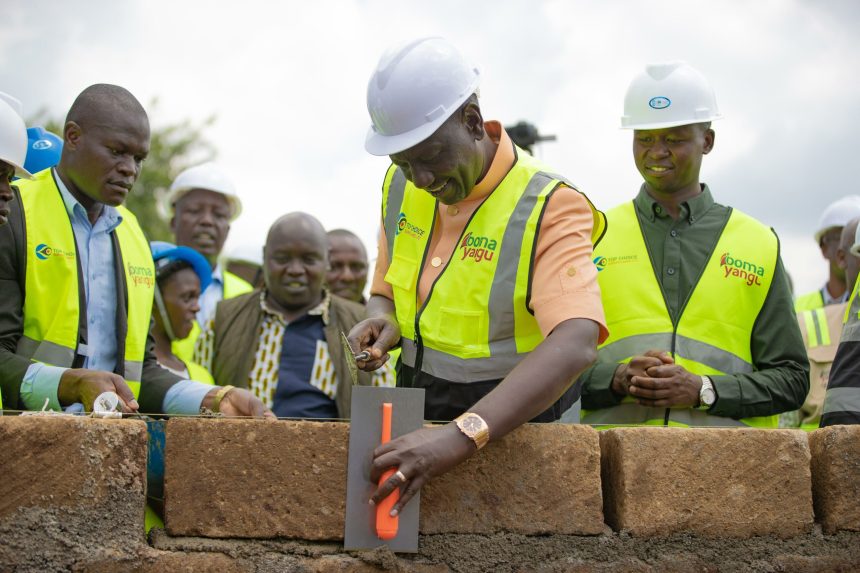Published on July 11, 2024 by Agencies for Kenya Online News
Last Updated on 8 months by Agencies for Kenya Online News
The High Court has declined to issue orders stopping the imposition of the affordable housing levy.
In declining to issue the orders the three-judge bench said the court should be slow in doing so especially in matters involving constitutionality of statutes.
“The petitioners have failed to demonstrate either that the challenged provisions pose a danger to life or threaten the bill of rights to warrant issuance of orders sought,” they said.
In closing, the judges said the matter will be determined on a priority basis.
Justice Olga Sewe, John Chigiti and Josephine Mong’are considered among other issues arguments advanced by the state that it would be difficult to reverse the effects if the orders were granted because contracts have already been signed and infrastructure projects initiated.
“We have no doubt that the affordable housing levy is a matter that has generated a lot of public interest. We are also convinced that the public interest tilts in favour of not granting the order but in prioritizing these petitions for hearing and determination,” they said.
Six petitions challenging the housing levy among other provisions of the Affordable Housing Act were filed but later consolidated.
Among them is one filed by 22 senators led by Busia Senator Okiya Omtatah and seven other human rights defenders.
They seek to quash the Act in its entirety, that is currently at the rate of 1.5% of gross salary as provided in the Act..
The petitioners in the matter have specifically taken issue with a section of the new Act that seeks to appoint the Commissioner General of KRA as the collector of the affordable housing levy, and sections 4 and 5 of the Act, which impose the levy.
The petitioners argue that the Commissioner-General of the Kenya Revenue Authority cannot be the collector of Affordable Housing Levy as his responsibilities are strictly restricted to the affairs of the Authority.
“The Commissioner General is not the KRA. It is the Authority, not its Commissioner-General, that, under Section 5 of the KRA Act, is given the mandate to collect and account for revenues in accordance with specified laws,” read the documents.
On March 19, President William Ruto signed into law the Affordable Housing Bill 2023, paving the way for the reinstatement of the contentious housing levy deductions.
The new legislation ropes in workers in the informal sector in order for the regulations to be in agreement with the High Court ruling that rendered it unconstitutional last year.
Under this new law, Kenyans will now be deducted 1.5 per cent of their gross monthly pay.
The petitioners have asked the court to quash the imposition of the Affordable Housing Levy at the rate of 1.5% as provided in the Affordable Housing Act, of 2024.
Also sought is an order suspending Section 2(1) of the Affordable Housing Act, 2024, to the extent that it appoints the Commissioner General of the KRA as the collector of the affordable housing levy, and sections 4 and 5 of the Act, which impose the levy.
Omtatah maintains that any collection of funds must wait for the Board to be operationalized.
“Further, such monies collected outside the law by the Commissioner General will be exposed to theft since it cannot be secured by being lawfully kept in any of the existing funds, including in the Consolidated Fund,” he says.
Those sued in the matter are the National Assembly, the Senate, the Attorney General, the Ministry of Lands, the National Housing Corporation, Kenya Slum Upgrading, the low-cost housing and Infrastructure Fund, the Commissioner General, and the Kenya Revenue Authority.
The Commission on Revenue Allocation, Controller of Budget, Attorney General, National Land Commission and the Council of Governors.






